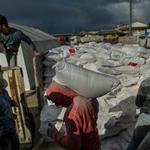Recent trends in the international humanitarian regime and the rise of the UAE
The United Arab Emirates is an Arab Gulf state that has received growing attention as one of the 21st century’s most generous humanitarian aid donors in the world. The young gulf monarchy, like the other fellow members of the Gulf Cooperation Council, has a well-known history of commitment to aiding nations in need. Since its foundation in 1971 it has been inspired by Arab and Islamic solidarity (i.e., old Emirati humanitarianism) and since the 2000s it has been influenced by regional politics and national security concerns (i.e., new Emirati humanitarianism). Limited academic literature on the United Arab Emirates’ (UAE) foreign aid, as is the case with the literature on the Arab Gulf states and Brazil, Russia, India, China and South Africa as aid donors, has at times problematised UAE aid based on the grounds that the UAE has motives and methods different from those of the western world and poses a potential challenge to the western principles and norms guiding foreign aid. Contrary to this kind of opposing distinction, this article contends that the new Emirati humanitarianism has been guided and inspired by the Organisation for Economic Co-operation and Development’s norms of transparency, accountability and efficiency; the United Nations’ neoliberal agenda of the Sustainable Development Goals; the US-led international practices of stabilisation in conflict zones; and the new market-oriented global trends of commercialisation, digitalisation and innovation in humanitarian governance in the 21st century.


